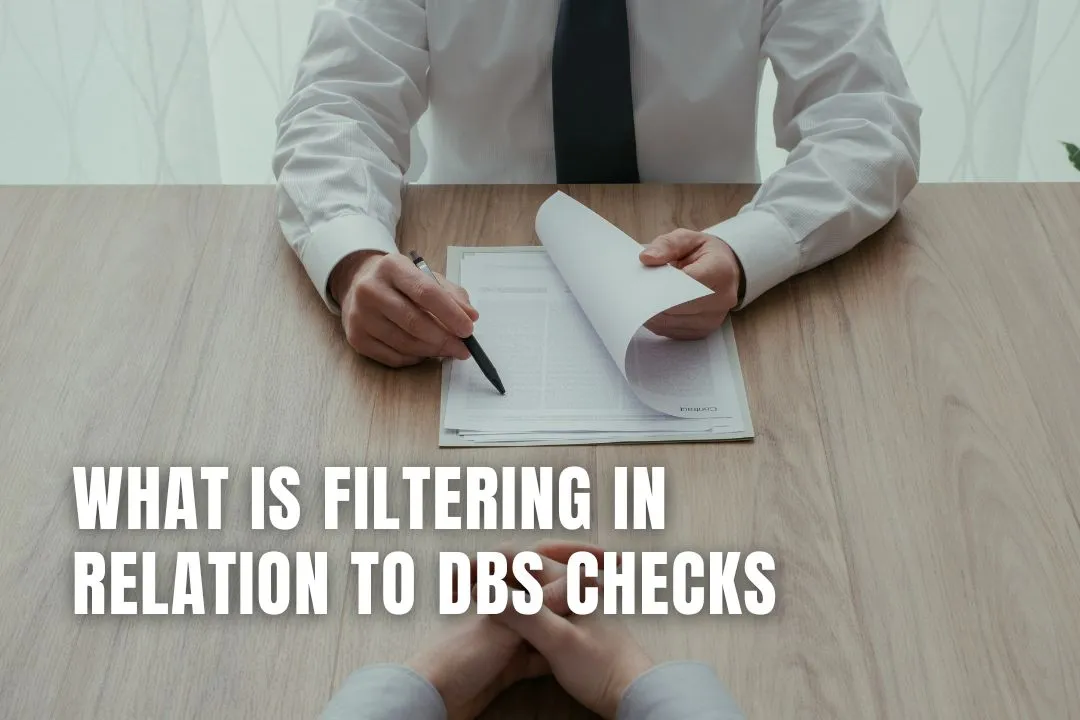
Editorial Disclaimer
This content is published for general information and editorial purposes only. It does not constitute financial, investment, or legal advice, nor should it be relied upon as such. Any mention of companies, platforms, or services does not imply endorsement or recommendation. We are not affiliated with, nor do we accept responsibility for, any third-party entities referenced. Financial markets and company circumstances can change rapidly. Readers should perform their own independent research and seek professional advice before making any financial or investment decisions.
If you've ever had to carry out a DBS check, whether as a job seeker or an employer, you may have come across the term filtering. It's not always particularly well understood, but it plays an important role in how criminal records are handled in the UK with regard to employment.
In simple terms, filtering is the legal process of removing certain old or minor offences from showing up on a DBS certificate. It's not about hiding serious risks; it's about giving people a fair chance to move forward from past mistakes that no longer pose a concern.
When someone uses a company like Personnel Checks to apply for a Standard or Enhanced DBS check, the Disclosure and Barring Service (and the police in some cases) look at their criminal record and decide what to disclose to the employer based on the position being applied to. Filtering is the mechanism that stops certain cautions or convictions from being included.
But this only applies under specific conditions. For adults, a conviction might be filtered if:
Cautions are filtered sooner - usually after 6 years for adults. For individuals under 18 at the time, the timeframes are shorter: 5.5 years for convictions and 2 years for cautions.
Some offences are considered too serious to be removed, no matter how much time has passed. These include:
There’s also a rule around multiple offences. If someone has more than one conviction, even if both are minor, none will be filtered out. That’s where many people get caught off guard - they assume older offences will be wiped clean, but that’s not always the case.
The idea behind filtering is fairness. Not everyone with a criminal record poses a risk to the workplace, especially if their offence happened years ago and they haven’t reoffended. A shoplifting caution at 19 shouldn’t necessarily block someone from getting a teaching job at 35 - assuming there have been no further issues.
Employers, especially those in regulated industries like care, education or healthcare, need to understand filtering so they can make hiring decisions based on relevant information, not outdated history.
It’s also worth noting that filtered information doesn’t just disappear, it will still be held on file by the police. But if filtered, it won’t appear on the DBS certificate, and employers are not allowed to ask about this information or take it into account.
Filtering serves an important role, protecting people from the potentially imbalanced impact of minor mistakes in their past while still ensuring that vulnerable individuals are safeguarded. For job seekers, it can make a big difference in what shows up on a DBS check, while for employers, it’s a reminder that it's best to approach recruitment with a balance of both caution and fairness.